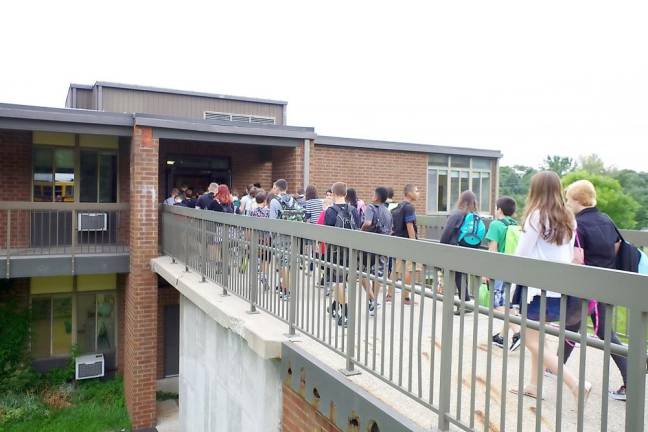School board member urges, ‘Make your home a judgment-free zone’
Vernon. Discussion continued about whether parents have a right to know their children’s LGBTQ status, after a teacher cited his religious faith to justify exposing a transgender student.

The Vernon school community on June 24 continued to debate comments made by a Glen Meadow Middle School teacher about a state statute protecting the privacy of transgender students, which has prompted calls for his termination or resignation.
Robert Dejulia discussed a student’s transgender status in public at the June 3 school board meeting. He said he had received an email from a school authority that one of his students had changed their name and preferred pronoun, and that the student’s parents didn’t know about the change. Ultimately, the student did come out to their parents.
Dejulia said he would not abide by the statue if he encountered the situation again, citing the teachings of his church and faith.
Former school board member Natalie Buccieri said Dejulia was only saying he would not lie to parents. She asked the school board why no one supported him.
“This board was saying he does not support all students,” Buccieri said. “He was saying he could not lie. Parents trust the school to educate the children and keep them safe.”
Other parents argued against the statute, saying they have the right to know if their child makes that “decision.” One accused the board of capitulating to an “agenda.”
“I feel, as a parent, I should be aware of that,” Dawn Demathis said.
Vicky Smith, an English teacher at Vernon Township High School and president of the Vernon Township Education Association, said she was speaking as a private citizen. She said no one was asking Dejulia to lie, and that the statute protects children from abusive parents.
“I have seen parents who have kicked children out of their homes for minor infractions,” Smith said. “Parents can be abusive. I’m not putting myself up as the ideal parent, but the one thing I did tell my children — and I hope other parents do this — tell them, ‘I love you unconditionally, and you can come to me with anything,’ and keep that conversation open. If parents kept that conversation open, we wouldn’t be in this situation.”
Martin Pirringer said the district must follow the law. People who oppose it should advocate before the state legislators who made the law.
“If you need to worry they won’t come to you with something serious like that, in due time, you better examine the way you raised them,” he said.
School board member Jennifer Pellet said the policy protects students who feel in danger at home.
School board member Adina Leuthner said LGBTQ children ponder suicide three times more than others, and that LGBTQ students who are rejected at home are 8.4 percent more likely to attempt suicide.
“That doesn’t speak to the parents here tonight who care about their children,” Leuthner said. “But there are some parents who reject their children when they identify with the LGBTQ community, and those are the children we are trying to protect.”
School board member Martin O’Donnell said of his nine children, three are members of the LGBTQ community. He said he was open with his children and, in turn, they were open with him.
“Over the years it has become easier for these children to come out and tell their parents,” O’Donnell said. “I was present for an irate parent when a child came out to them. There are two important sides to this. Make your home a judgment-free zone.”
“There are some parents who reject their children when they identify with the LGBTQ community, and those are the children we are trying to protect.” Adina Leuthner

